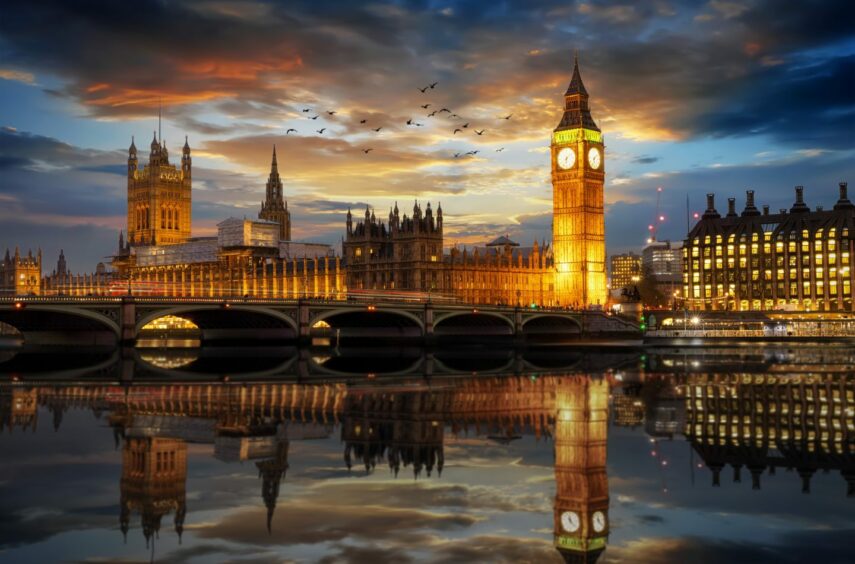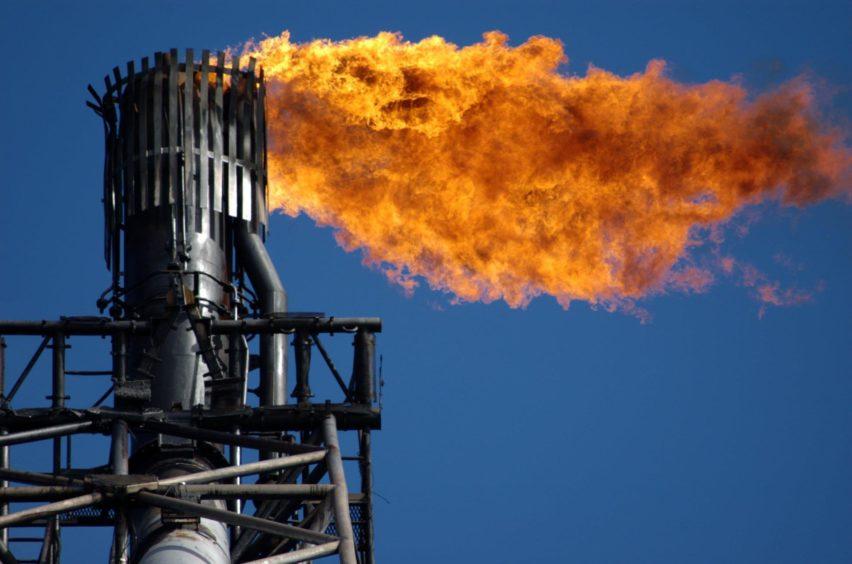
The Government’s bid to maximise North Sea oil and gas production has taken a step closer to becoming law, amid warnings it is “a distraction and not necessary”.
Conservative former minister Sir Alok Sharma urged ministers to tighten controls around flaring on offshore platforms as MPs concluded their scrutiny of the Offshore Petroleum Licensing Bill.
As the Bill cleared the Commons, Sir Alok, who was president of the Cop26 climate talks, predicted trouble for ministers in the House of Lords if they did not bring forward similar plans.
Labour and the SNP continued to criticise the Government’s bid, with an Opposition frontbencher branding it “political posturing”.
Sir Alok had urged ministers to support his amendment to the Bill, which he said would “prevent the invitation of new production application licences until the Secretary of State has introduced a ban on flaring and venting methane by new offshore installations”.
He added it would also require the Government to prevent licensing rounds from 2030 if a wider ban on flaring and venting is not in place.
The Tory former minister said: “All it modestly seeks to do is put into statute existing guidance on flaring and venting issued by the North Sea Transition Authority.”
Sir Alok chose not to press for a vote on his amendment, instead saying he hoped the Government would introduce similar changes to the Bill in the Lords.
But he added: “If the Government chooses not to, I’m pretty sure a similar amendment will anyway be tabled in the Lords and is likely to be supported.
“I just humbly observe that if the Government does either in this House or the Lords whip against this or a very similar amendment, it will put colleagues in the absurd position of effectively having to vote against existing Government policy.”
He also described the overall plans as “something of a distraction and not necessary”, and said his belief was rooted in the fact that the North Sea Transition Authority can already grant licences annually or whenever it considers it necessary.
Elsewhere, shadow climate change minister Alan Whitehead described the Bill as “an ill-advised, pointless piece of political posturing”, and agreed with Sir Alok that it legislates for something “that happens anyway”.
Amendments to bill rejected
However, a Labour amendment attempting to ensure official climate change tests are applied before new oil and gas licences are granted was rejected by MPs by 287 to 226, majority 61.
SNP energy spokesperson Dave Doogan meanwhile said the Bill was an attempt to create a political “wedge issue” out of the transition in the North Sea economy.
He added: “We know that because this is a non-existent solution to a non-existent problem.
“Twenty-seven new licences were granted in (2023) and a licensing round has been held by the North Sea Transition Authority every year-and-a-half since 2016.”
Energy minister Graham Stuart defended the UK’s record on responding to climate change, telling MPs: “This Bill will protect jobs, tax receipts and sovereign capability so we can continue that world leadership.
“As one of the world’s most decarbonised major economies the UK remains dependent on oil and gas and will be, albeit in reducing amounts, according to the Climate Change Committee even when we’re at net zero in 2050. But we’re a net importer and UK production is falling fast.”
Mr Stuart claimed the Bill would “send a signal to industry” that continued production in the North Sea is the “right thing to do”.
Replying to Sir Alok’s amendment, he said the Government is already committed to “ending routine flaring and venting by 2030”.
He added: “I fear that legislating in this way risks replacing voluntary momentum with a slower compliance-based, more resistant approach from industry but, if I may, I will continue to engage with (Sir Alok) as this Bill moves to the Lords with a view to delivering the end of flaring and venting by 2030 at the latest.”
The Bill cleared the Commons, with MPs voting by 286 to 221, majority 65.
Recommended for you

